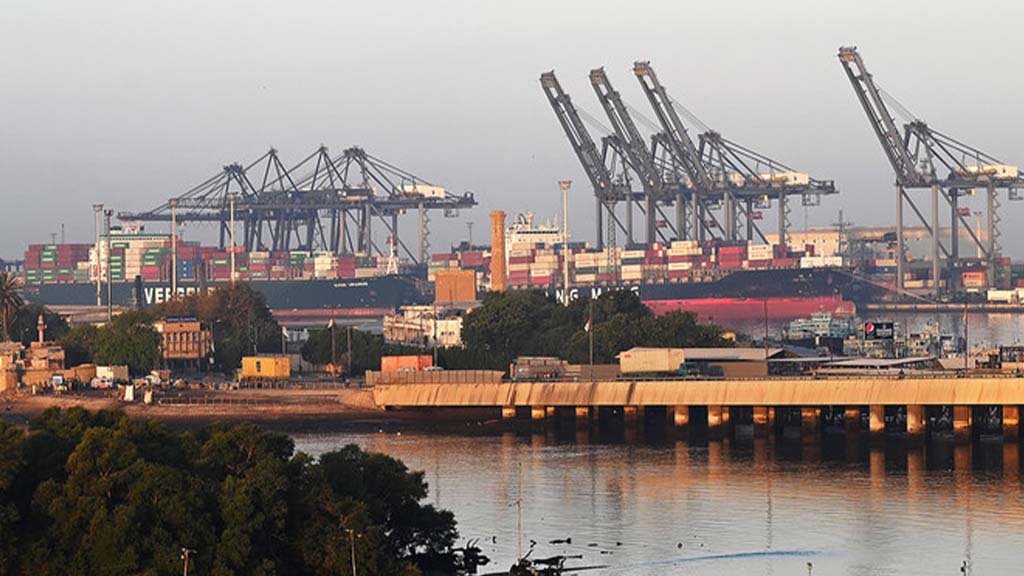Federal Minister for Maritime Affairs Qaiser Ahmed Sheikh revealed that thousands of tonnes of cargo were dumped at Karachi Port. He stated that the government was planning to either auction or send back the polluted cargo to its countries of origin, as it was producing waste and pollution.
The minister said this while speaking at the ‘National Policy Dialogue on Circularity and Used Textile Trade in Pakistan’ organized by the Sustainable Development Policy Institute (SDPI). Complaints were received that developed countries dumped polluted cargo at Karachi Port without any claimants, creating waste and pollution.
The minister said that textiles were one of the major businesses in Pakistan, with used textile goods providing affordable options, as 40 percent of the population—100 million people—live below the poverty line.
He noted that more than 430,000 metric tonnes of used clothing arrived in Pakistan in the fiscal year 2023-24, supported by port and shipping infrastructure.
He emphasized the vital role of Pakistan’s maritime infrastructure in facilitating the import of second-hand textiles, adding that he recognized that the efficient handling of these imports was essential for supporting local economies, job creation, and textile recycling efforts.
The federal minister further stated that his ministry was focusing on improving port efficiency and container management to streamline the processing of these goods, ensuring that shipments were processed in a timely and cost-effective manner.
The minister also outlined ongoing efforts to develop waste sorting hubs for textile recycling, a key step in managing textile waste and reducing the environmental impact of global textile trade.
DG Textile Mudassir Raza said that used textiles and circularity produced around two million jobs in Pakistan. He also mentioned the government’s intervention through the export development fund, which is still ongoing.
Other speakers noted that the country was among the top importers of second-hand textiles, mostly exported by the European Union, and needed green measures to ensure sustainability and circularity, as the refurbishment of such goods burdened local water and energy resources.
Many SMEs are associated with the textile sector, contributing greatly to the country’s economy. It is estimated that the textile industry was valued at $1.6 trillion in 2023 and will reach up to $3.3 trillion by 2030, they added.
Head of the Economic and Trade Policy Unit at UNEP, Asad Naqvi, said that second-hand textiles were important for poor masses and the small and medium enterprises (SMEs) and value chains around them.
Since second-hand textiles are being imported, they contribute significantly towards circularity, with added expenses in the form of energy and water used to refurbish such textiles, he added.
Jeroen Willems, Head of Cooperation at the EU Delegation to Pakistan, said that used textiles were effectively being exported to Pakistan, Ghana, and Tunisia by Europe, and the demand for second-hand textiles would double globally.
“Pakistan is among the top importers of such second-hand textiles. In the EU, there is a notion of ‘fast fashion’ in which, on average, people discard a shirt after using it seven times, resulting in a huge waste of many resources such as energy, water, and chemicals,” he added.
Willems said the EU was developing rules regarding the effective sorting of clothes that were to be reused or recycled.
Yulia Bazhenova of GIZ Germany, Mustafa Sattar of Retex Global, and KPEX Karachi also addressed the event.
Zainab Naeem of SDPI gave a presentation outlining the current scale of second-hand clothing imports in Pakistan, which saw a 17 percent increase in 2023-24, totaling 433,651 metric tonnes and generating over $40 million in revenue.










